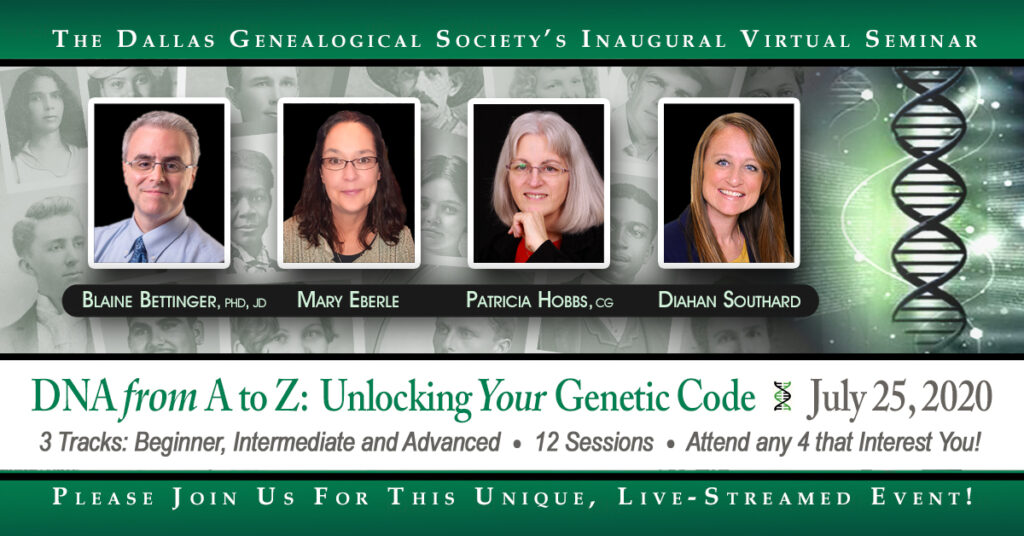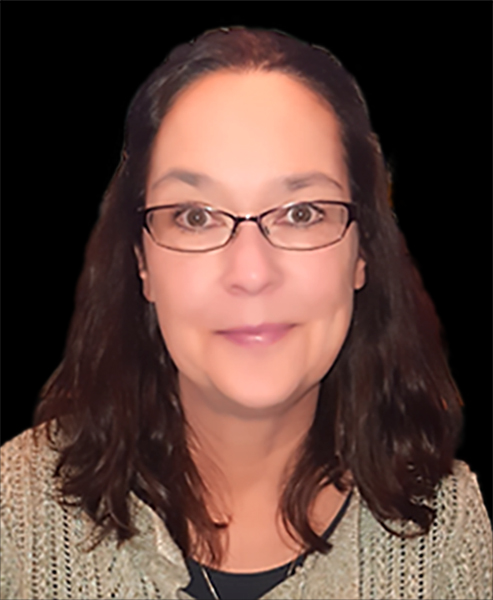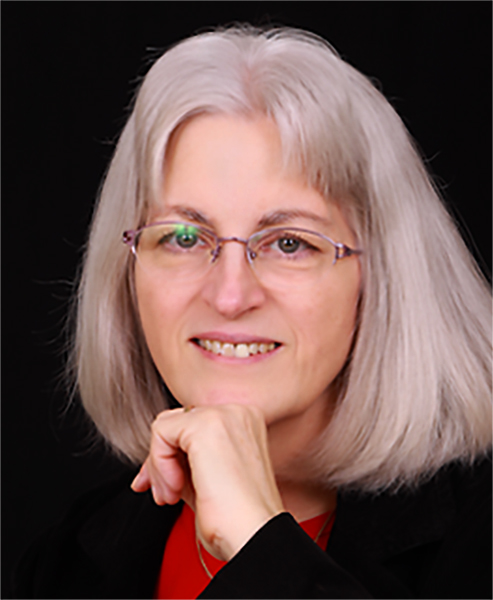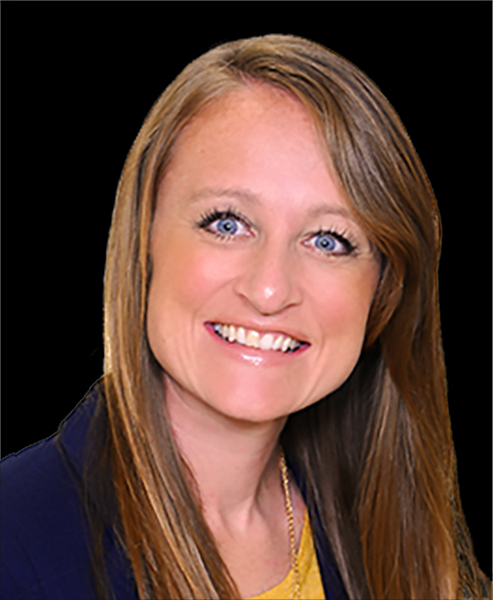
3 tracks with 12 classes – Follow a track or mix and match!
Beginning Track
Session 1B - Mary Eberle: Introduction to Using DNA for Genealogy Research: Want to start using DNA for genealogy research but want guidance on the best approach? Received your DNA results and want a better understanding of them? This talk covers DNA basics, available tests, and how to develop your DNA testing plan.
Session 2B - Mary Eberle: Using Autosomal DNA for Genealogy Research: Autosomal DNA (atDNA) provides the most useful information for most genealogists. Learn how to analyze your atDNA test results and find common ancestors with your DNA matches.
Session 3B - Mary Eberle: DNA Results Case Study: This session will take you from when you first open your Ancestry DNA results through the process of interpreting they mean. Learn some tricks for clarifying and making the most of your DNA test results. Although this study will use Ancestry DNA, the principles learned can be used for other testing companies.
Session 4B - Diahan Southard: How DNA Made a Family Out of Strangers. My mom was adopted from an unwed mother’s home in Seattle, Washington. Come learn how we were able to use a combination of genetic and genealogical tools to connect with our biological family, and how it has affected our lives. Leave with concrete ideas on how to apply these same methods to your own personal genetic genealogy endeavors, whether you are looking for your father, or your 3-times great-grandfather.
Intermediate Track
Session 1I - Patricia Hobbs: Using GEDmatch for DNA Analysis. GEDmatch provides tools that allow comparisons among people who have tested at different companies. It also allows AncestryDNA test takers to see their chromosome segment data for more granular comparisons.
Session 2I - Diahan Southard: Making YDNA, mtDNA and X-DNA Part of Your Family History. YDNA, mtDNA and X-DNA are often overlooked in this autosomal-centered industry. Come learn how these tests can enliven your family history work
Session 3I - Diahan Southard: Organizing Your DNA Results. Now that you have pages of matches and gobs of new information, how do you keep track of it all? We will spend time going over how to create and track correspondence, organization tools within each testing company, as well as strategies for tracking the genealogy information of your matches, including surnames, locations, and genetic relationships. You are bound to walk out of this lecture with a game plan that you can implement right away.
Session 4I - Patricia Hobbs: Using DNA gedcom and its successor's multiple tools to analyze DNA results. DNAgedcom, and its successor Genetic Family, have tools that are ever evolving to be more useful for Genetic genealogists. This session will discuss capabilities of both and demonstrate how to use them to solve genealogical problems.
Advanced Track
Session 1A - Blaine Bettinger: Evaluating a Genealogical Conclusion Including DNA – Someone tells you that they’ve proven their connection to a genealogical ancestor using DNA, but have they really proven it? Did they avoid the known pitfalls? Together we will discuss the most common pitfalls when using DNA evidence and propose the minimum requirements for a genealogical proof comprising DNA.
Session 2A - Blaine Bettinger: Using Autosomal DNA for 18th and 19th Century Mysteries – Even though our 18th and 19th century ancestors have been dead for decades, their DNA still survives in their descendants. Learn how to use autosomal DNA to attack and potentially solve genealogical mysteries and brick walls for ancestors who were born or lived in the 1800’s, 1700’s, and beyond.
Session 3A - Blaine Bettinger: The Latest Advances in Third-Party Tools for Autosomal DNA – Third-party websites are very popular with hundreds of thousands of genealogists. These tools can be used to mine for and learn about our close genetic matches. We’ll examine the latest tools and updates available from these excellent websites.
Session 4A - Blaine Bettinger: Ethical and Legal Considerations for DNA Evidence – We will cover some of the legal, contractual, and ethical protections for DNA, including the Genetic Information Nondiscrimination Act (GINA) and The Genetic Genealogy Standards, among others. We will also examine ways to use this information to promote DNA testing by relatives.
Our Instructors

Blaine Bettinger, Ph.D., J.D
Advanced Sessions
Blaine is a Professional Genealogist specializing in DNA. He is the author of the long running blog The Genetic Genealogist as well as several books on Genetic Genealogy. Blaine frequently presents at national events and advanced institutes.

Mary Eberle
Beginning Sessions
Mary is a retired patent attorney who has been working with DNA for more than 30 years. She formed DNA Hunters in 2015 to utilize her knowledge of DNA to provide help for adoptees and others with unknown parents, grandparents, or other ancestors. She is the author of “23 Best Tips for DNA Testing and Family History”.

Patricia Lee Hobbs, CG®
Intermediate Sessions
Patti is a professional genealogist and is the course coordinator for “Genetics for Genealogists: Beginning DNA” at the Institute of Genealogy and Historical Research. She is a contributing author to Advanced Genetic Genealogy: Techniques and Case Studies. Her article “DNA Identifies a Father for Rachel Lee of Huntingdon County, Pennsylvania” was published in the March 2017 issue of the National Genealogical Society Quarterly.

Diahan Southard
Beginning & Intermediate Sessions
Diahan is the author of the book Your DNA Guide – the book and numerous quick guides on genetic genealogy. She is a featured writer for Family Tree Magazine, a regular contributor to Genealogy Today, a former contributor to Genealogy Gems, contributor to several other publications and publishes articles on her blog.
Schedule - Saturday July 25, 2020
(Central Standard Time)
| 8:50 am | 9:00 am | Welcome |
| 9:00 am | 10:10 am | Session 1 |
| 10:10 am | 10:45 am | Break |
| 10:45 am | 11:55 pm | Session 2 |
| 11:55 pm | 1:00 pm | Lunch Break |
| 1:00 pm | 2:10 pm | Session 3 |
| 2:10 pm | 2:45 pm | Break |
| 2:45 pm | 3:55 pm | Session 4 |
| 3:55 pm | 4:00 pm | Closing Remarks |
Cost
(US Dollars)
| By July 5 | After July 5 | |
|---|---|---|
| DGS Member | $60 | $70 |
| Others | $70 | $80 |
| Student * | $50 | $60 |
* Students will contacted after registration to verify their status
Refund Policy: Requests for refunds made prior to the early-bird cutoff date (July 5, 2020) will be granted (less a $10 handling fee). No refunds will be issued for cancellations made after July 5, 2020 (although we will provide a PDF version of the syllabus).
